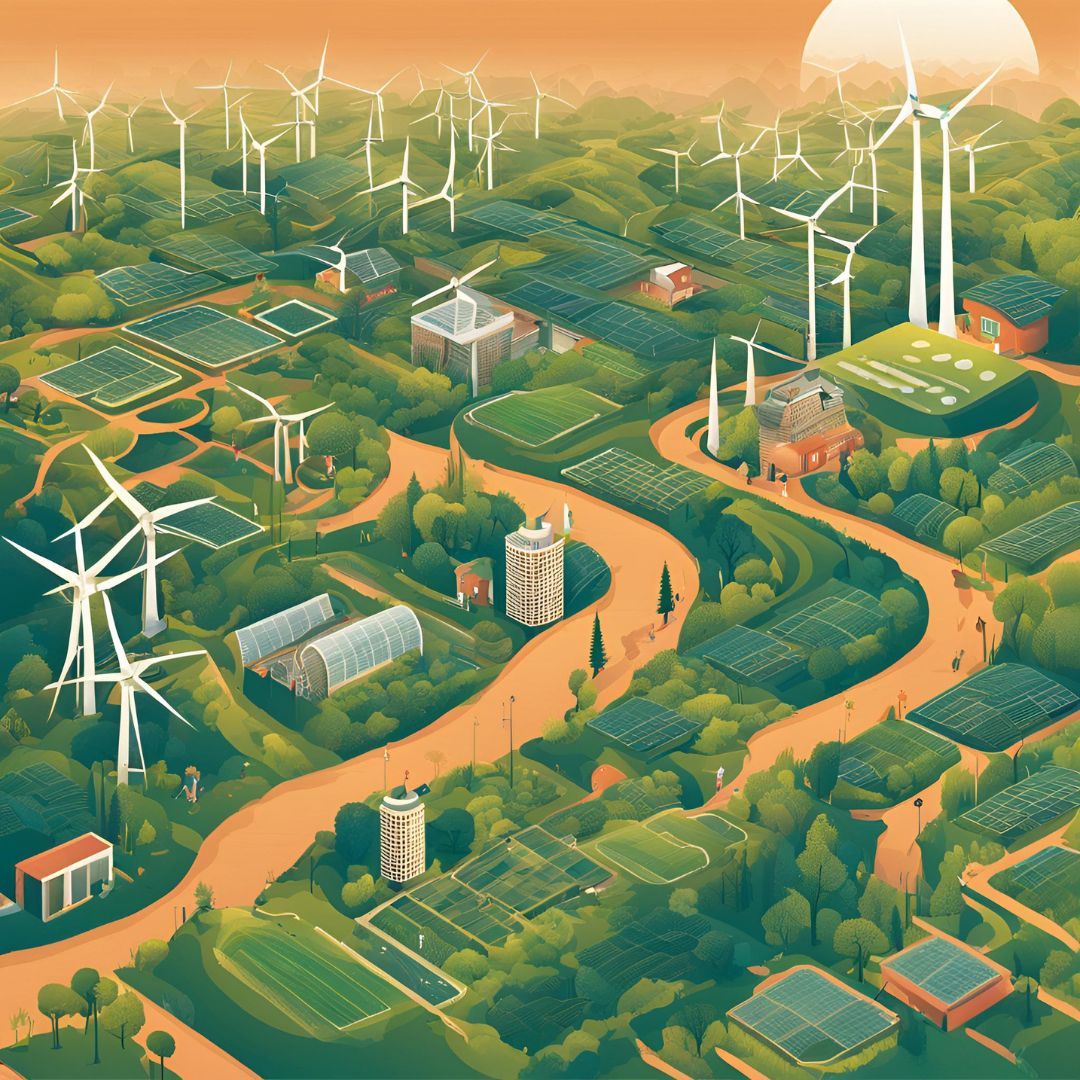
A Greener Future Thanks to AI
Artificial Intelligence (AI) is rapidly becoming a fundamental tool in the fight for sustainability. With the increasing global awareness of climate change and the depletion of natural resources, businesses, governments, and communities are seeking innovative solutions to reduce environmental impact. In this context, AI is emerging as one of the most promising technologies for promoting sustainable practices and improving efficiency across various sectors.
Management of renewable energies
One of the areas where AI is having a significant impact is in the management of renewable energies. Renewable energy sources, such as solar and wind, are inherently variable due to weather conditions. AI can help forecast energy production with greater precision by analyzing meteorological and historical data to optimize resource use. For example, AI systems can adjust the tilt of wind turbine blades in real-time to maximize energy production. Similarly, solar installations can use AI to optimize panel orientation and forecast energy demand, contributing to a reduction in dependence on fossil fuels.
Optimization of energy efficiency
AI is also crucial for improving energy efficiency in buildings and infrastructure. By using smart sensors and machine learning algorithms, energy management systems can autonomously monitor and control energy consumption, identifying areas of inefficiency and suggesting corrective actions. A practical example is the use of AI to manage heating, ventilation, and air conditioning (HVAC) systems in buildings. These systems can automatically adapt to environmental conditions and occupants' needs, reducing energy consumption and CO2 emissions.
Reduction of waste and
Optimization of Supply Chains
AI can revolutionize supply chain management by reducing waste and enhancing the sustainability of production processes. By analyzing data across the entire supply chain, AI can identify inefficiencies and optimize logistics, thereby reducing greenhouse gas emissions associated with transportation and production. For instance, AI-based systems can accurately forecast product demand, allowing companies to reduce excess inventory and minimize waste. Additionally, AI can optimize transportation routes, reducing fuel consumption and the overall environmental impact.
Environmental monitoring and conservation
AI is also used for environmental monitoring and conservation. Through the use of drones, sensors, and satellite imagery, AI can collect and analyze large-scale data to monitor ecosystem health, detect illegal activities such as deforestation or overfishing, and predict natural disasters. These tools enable timely intervention to protect natural resources and preserve biodiversity, contributing to a more sustainable future.
The adoption of artificial intelligence in the field of sustainability offers immense potential to tackle the environmental challenges of our time. From managing renewable energies and optimizing energy efficiency to reducing waste and monitoring the environment, AI is transforming the way we approach sustainability. However, it is essential that these technologies are used responsibly and transparently to ensure that the benefits of AI are distributed equitably and that the solutions developed have a positive and lasting impact on our planet. Artificial intelligence represents a key piece in the sustainability puzzle, and its potential must be fully harnessed to build a greener and more resilient future for all.




